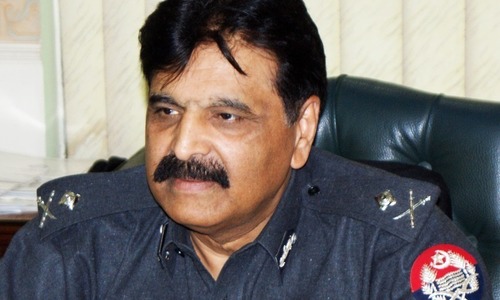MYSTERY continues to shroud the sudden death of professor and activist leader Arman Loni in Loralai on Saturday.
Family and friends of the deceased allege that the police were responsible for killing Loni during a crackdown on a days-long sit-in, yet the police claim that a postmortem revealed no signs of injury. Days later, there is still no clarity on the circumstances of his death — which is threatening to stoke an already contentious issue.
Context is key. Against a backdrop in which several high-profile extrajudicial killings have cast a sustained spotlight on excessive force by state authorities, the risk of tensions spiralling out of control is high. Monday’s strike in several areas across Balochistan — with its widespread support from political parties across ethnic lines and sections of society including traders and lawyers — is indicative of Loni’s popular standing in civil society as well as how widespread the public disaffection is. The provincial chief minister took notice of Loni’s death the very next day, perhaps in recognition of these delicate sociopolitical implications.
Concurrently, in the wake of a brutal attack on the DIG police complex in Loralai last week, vigilance on the part of law enforcement and the provincial government is understandably necessary.
Also read: Extrajudicial killings
However, in question here is not only the issue of whether or not Arman Loni was indeed a victim of police brutality, but the very nature of ‘vigilance’ being distorted by public servants to evade accountability and justify curtailing people’s rights. Paranoid, overreaching measures taken in the interest of ‘maintaining public order’ are counterproductive. Thus, statements by the provincial home minister seeking to blame those who contest the official version of events (as it currently stands) while in the same breath promising a fair investigation will hardly serve to dispel such perceptions.
Loni’s death demands an unbiased and transparent probe. But it also requires that the provincial and federal governments be responsive to the public’s mood and work to de-escalate a potentially volatile situation.
Published in Dawn, February 6th, 2019














































